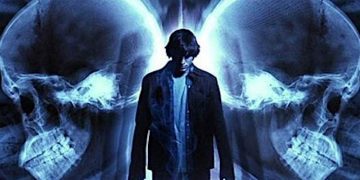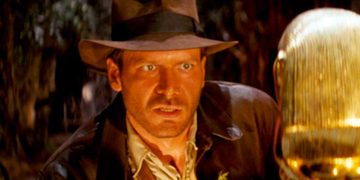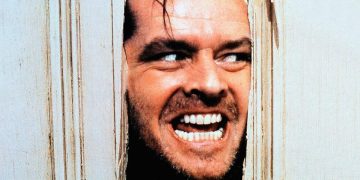Science fiction literature was blessed by minds like Jules Verne and Isaac Asimov who put cutting-edge ideas to words. Likewise, science fiction cinema has been pushed forward by imaginative movie directors who have the keen ability to execute their visions so profoundly.
Indeed, not every film director has the capability to take audiences into the streets of Los Angeles in 2049 or through the creepy hallways of The Nostromo while a creature hunts down the ship's crew.
The skill and talent to make an audience believe that we're really there with the characters of the film, in this fictional world that's unlike anything we've ever seen ourselves—whether an alternate version of our world, a possible future for our world, or a completely different world altogether—is one that very few can pull off.
Who are the best sci-fi movie directors and filmmakers? Here are our picks for the greatest names who have impacted cinema and pushed its limits to greater heights.
7. Steven Spielberg
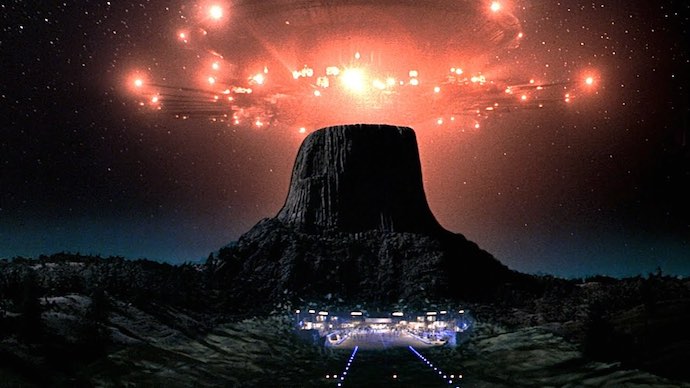
In any list of greatest movie directors, Steven Spielberg would have to contend for the top spot. His pace, skill, and variety is so uniquely consistent throughout the cinematic legend's long career.
When looking at his sci-fi output, Spielberg's oeuvre remains strong, with film classics like E.T. the Extra-Terrestrial, Jurassic Park, Close Encounters of the Third Kind, Minority Report, and War of the Worlds all part of his excellent filmography.
However, while his sci-fi chops are proven, Spielberg doesn't have any films in the genre that can be considered overtly better than the likes of Blade Runner or Solaris—a mark against him.
For all of Spielberg's sci-fi films that have captured the imaginations of billions for, he's never made a singular picture in the genre that could compete with true sci-fi masterpieces.
6. Fritz Lang
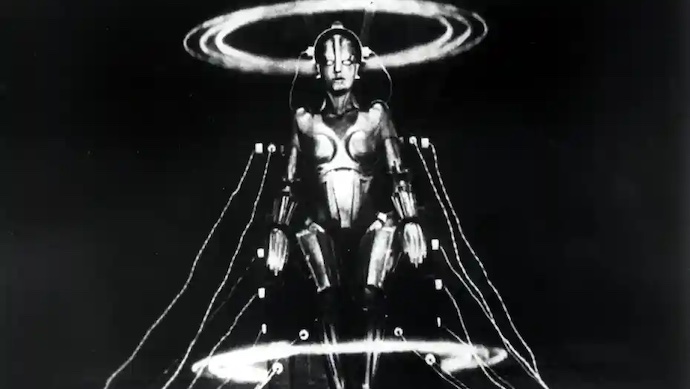
Is Fritz Lang's Metropolis the first sci-fi film ever made? No, it isn't. (That honor belongs to A Trip to the Moon.) Is it the best sci-fi film ever made? Again, no. It comes close, but falls short of that.
So, why is Fritz Lang's masterpiece considered an achievement like few others in modern cinema? Because without Metropolis, the sci-fi genre would be pretty much nonexistent or unrecognizable.
Fritz Lang, the German expressionist filmmaker, is still widely regarded as one of cinema's greatest thinkers. His filmic creations during a time when sound was a new technology for cinema defied what audiences ever expected from filmmakers of the era.
Lang's work in cinema extends far beyond his work on Metropolis; however, when all is said and done, it's Metropolis that stands as a monument to its creator and the beginnings of science fiction in film.
5. Andrei Tarkovsky

Andrei Tarkovsky is the incredible Russian filmmaker whose work has lasted the test of time long after his death, and that's because his imagination appeared to have no limits.
His conceptual building of a film around a singular plot point and using narrative to expand the tale across decades is unrivaled. His is a narrative style that many have tried to imitate but few have ever been able to.
Among his sci-fi films, two of the best known are Stalker and Solaris, the latter of which was a direct attempt by Tarkovsky to improve on what Kubrick achieved with 2001: A Space Odyssey. Tarkovsky produced movies that nobody could replicate in their ambition and execution.
While Stalker has lived on as a great film in cinephile culture, Solaris is still known as one of the most influential and profound sci-fi movies that any filmmaker has made.
4. Denis Villeneuve
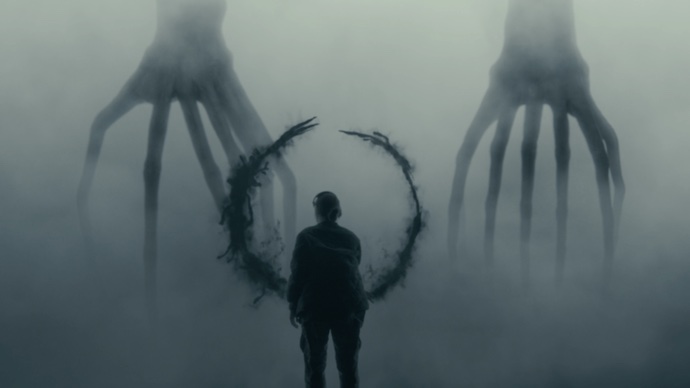
When the 21st century reaches its end and people look back on the 100 years of film produced during that century, Denis Villeneuve's work as a sci-fi filmmaker will stand with whomever else attempts to reach the plane he's currently operating on.
Denis' eye for scope and vision within the camera lens is itself a purely cinematic achievement. Only the vast expanse of a cinema screen is able to portray the grandiosity of his executions with such aplomb.
With films like Arrival, Blade Runner 2049, and Dune already under his belt, not only has the Canadian demonstrated his originality and talent, but also his ability to adapt prior works for the big screen.
Much like a filmmaker from times long passed, Villeneuve's control and wondrous beauty give his pictures a unique stamp that's wholly him—one that'll last long into the distant future.
3. Stanley Kubrick
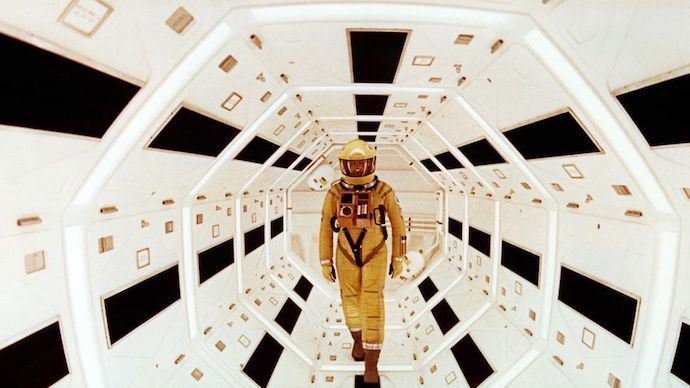
A writer once wrote about Stanley Kubrick that he'd single-handedly invented the sci-fi genre and ruined it all at once with a single movie—and that movie was 2001: A Space Odyssey.
Throughout the fastidious filmmaker's meticulous career, Kubrick had only created one film that could be considered true sci-fi. And as the writer who alluded to Kubrick's sci-fi invention observed, it's the film that remains at the apex of the genre.
But contrary to that writer's thoughts, Stanley Kubrick's work certainly did NOT kill the sci-fi genre; if anything, the cinematic foundation built by Kubrick is what keeps the genre going.
Ever since, filmmakers have been attempting to reach the standard set by Kubrick. Some have perhaps attained Kubrick's level, but none have ever surpassed or improved on what he's done.
2. James Cameron

James Cameron put himself on the same tier as the greatest sci-fi filmmakers of all time with his first four films: The Terminator, Aliens, The Abyss, and Terminator 2: Judgment Day. (We're ignoring Piranha 2, which Cameron himself has disowned.)
It's fair to say that if any one director pushed the modern sci-fi genre to new heights with their work, it's Cameron. His sci-fi creations forced technological advancements in filmmaking, developing and pioneering new ideas and techniques along the way.
When it came out in 1991, Terminator 2: Judgment Day had the largest budget ever given to a film—and it single-handedly proved that more money should be given to filmmakers to achieve a look that felt wholly real rather than using miniatures or "cheap" practical effects.
1. Ridley Scott
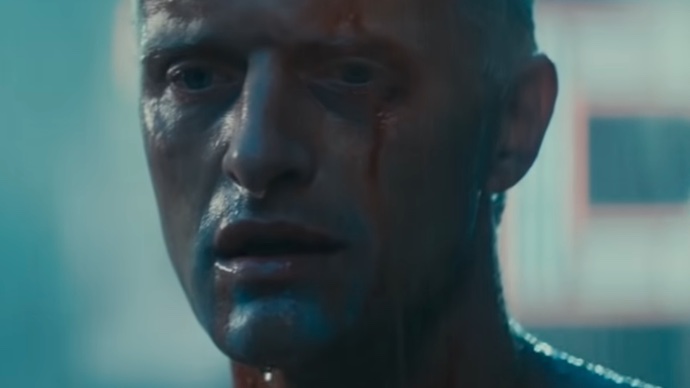
Taking Prometheus, The Martian, and Alien: Covenant out of the equation, Ridley Scott has only made two other sci-fi films—but those two films have earned their rightful spots alongside the pantheon of greatest sci-fi movies ever made.
The first of those Ridley Scott movies is Alien, the story about an unidentified creature from LV-426 that bursts through the chest of John Hurt's character and subsequently hunts down the crew members of The Nostromo. It's a sci-fi classic for the ages.
Then, after the success of Alien, Ridley Scott made Blade Runner. It was a shambolic movie that confused most people and caused a rift between Harrison Ford and Ridley Scott—at least until Ridley Scott released his director's cut of the film, which was vastly improved.
While Stanley Kubrick, Andrei Tarkovsky, Steven Spielberg, Fritz Lang, and James Cameron all invented, defined, and improved the genre, none of them grasped science fiction like Ridley Scott.

